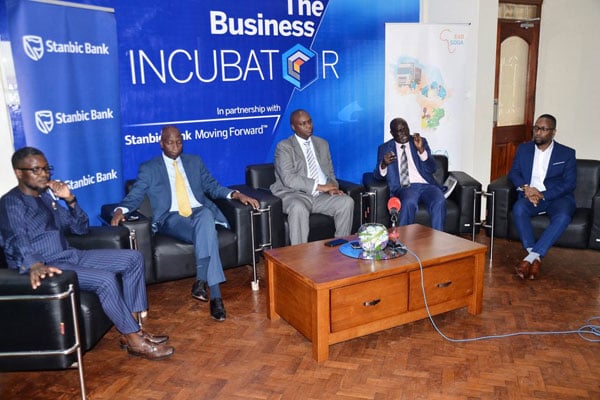URSB starts integrating intellectual property rights aspects in institutions

Registrar General, Mercy Kainobwisho speaks during National Intellectual Property Week. Photo | Courtesy
What you need to know:
- URSB explains that the move aims at ensuring that everyone’s brand is protected and paid for by those who use it.
The copyright owners are bound to benefit from their products following Uganda Registration Services Bureaus' (URSB) decision to begin integrating the intellectual property rights aspects in all government institutions and private institutions.
URSB explains that the move aims at ensuring that everyone’s brand is protected and paid for by those who use it.
Over the past decades, the protection of intellectual property rights (IPRs) has undergone tremendous changes fostered on the one hand by a widening of the range of products and technologies covered by proprietary rights and on the other hand, by policy shifts that have initiated a move towards globally harmonized standards of protection.
In a statement issued by URSB following the end of National Intellectual Property Week, the Registrar General, Mercy K. Kainobwisho said Uganda has a notable advantage of a robust legal framework that allows for the protection of a multitude of different IPRs, a legal framework that recognizes the rights of individuals as well as institutions to own and, manage their rights.
“As a country, we also have a robust multi-sectoral institutional framework to support the implementation of interventions favoured towards innovative outputs and innovators,” she said.
Ms Kainobwisho said most of the businesses, especially SMEs are struggling to remain resilient amidst the effects of the Covid-19 pandemic and global shocks which are negatively affecting their growth and expansion.
She said SMEs are faced with a myriad of challenges like limited funding, low-value addition, limited skilled manpower/labour, and stiff competition from established firms in the market, limited branding and marketing.
However, she said SMES can address some of these challenges through intellectual property rights, arguing that intellectual property (IP) is of great importance to SMEs.
“A number of studies show that firms in general and SMEs in particular, perform better when they pay attention to their IP. It has been argued that IP can be used as a game changer for high growth of SMEs, startups even when there are younger and large firms,” she said.
Ms Kainobwisho added: “IP rights are key economic assets in today’s knowledge economy. That is why SMEs need to build an IP strategy in the early stages of their development. Such an approach will enable them to leverage their IP assets for growth.”
The overall objective of National Intellectual Property Week was to highlight the role of IP as a policy tool for economic development, general IP awareness, Institutional IP policies and their implementation, technology transfer and appropriate technology.
Mr Fukuzawa Hidemoto, the Ambassador of Japan in Uganda said intellectual property is essential for creating innovations with appropriate utilization of the rights.
Mr Emmanuel Rugomboka, Counsellor, Division of Africa, WIPO said that IP and intangible assets will help micro, small and medium enterprises (MSMEs) navigate an innovation-driven business model that will support their sustainability.




